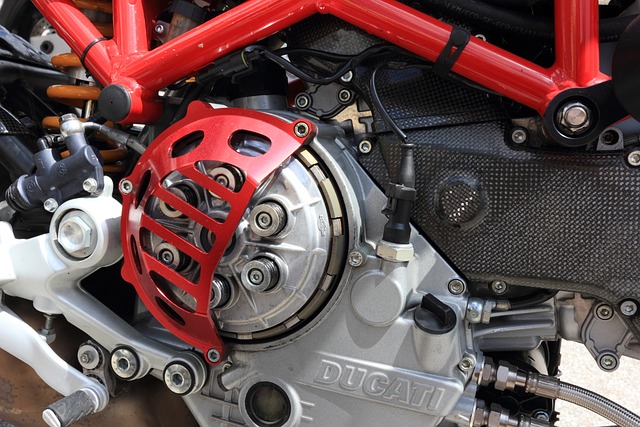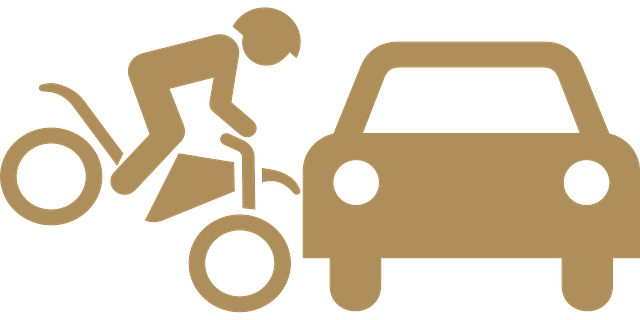A motorcycle clutch is like a trusted companion. It’s an integral part of your ride, and it can either make the journey smooth or cause you some major headaches. But how long does a motorcycle clutch last? Well, this depends on several factors and how well you maintain it.
With proper care and maintenance, your clutch could last for years. However, there are signs that indicate when wear and tear has begun to take its toll. Knowing what to look for, as well as proper troubleshooting techniques, can help extend the life of your clutch so you can keep enjoying those open roads.
Key Takeaways
- Factors affecting motorcycle clutch longevity include early friction, lubrication, maintenance, and oil grade.
- Signs of wear and tear on a motorcycle clutch include slipping, unusual noises, and difficulty shifting.
- Tips to prevent clutch slipping include using adjustable levers and keeping cables lubricated.
- Regular maintenance habits for a motorcycle clutch include regularly inspecting components and ensuring clean clutch plates.
Factors that Impact a Motorcycle Clutch’s Longevity
You may be wondering what factors can influence the longevity of a motorcycle clutch – let’s explore!
Early friction, caused by improper use or overuse, is one factor that can lead to an early demise for your clutch. Similarly, not following the manufacturer’s recommendations on how often to change your lubricating oils will also have a negative effect on its lifespan.
Additionally, neglecting regular maintenance such as cleaning and inspecting components could result in accelerated wear and ultimately force you to replace it sooner than expected.
Last but not least, using a higher-grade oil than recommended could also cause premature failure due to too much viscosity.
Understanding how each of these factors affects your clutch will help you keep it running smoothly for longer!
Signs of Wear and Tear
Are you noticing that your clutch is slipping, making unusual noises, or having difficulty shifting? These are all signs of wear and tear on your motorcycle’s clutch. As the component that allows you to shift gears smoothly and safely, it’s important to take note of any changes so that you can repair or replace it as soon as possible.
Pay attention to any strange sounds and behavior so that you can keep your bike running in top condition.
Slipping clutch
It can be incredibly frustrating when your motorcycle clutch starts to slip, leaving you unsure of when it’s going to work and when it won’t. To keep your clutch working properly, here are some tips:
- Preventative Care
- Adjustable levers: Make sure the lever is adjusted correctly for optimum performance.
- Lubrication: Keep your cables lubricated and in good condition.
- Inspect Regularly
- Wear & Tear: Inspect the clutch components regularly for signs of wear and tear.
- Clutch plates: Check that the clutch plates are clean and free from damage or debris.
Following these preventative care steps can help ensure that your motorcycle clutch lasts as long as possible and performs optimally.
Unusual noise
Unusual noises coming from your motorcycle’s clutch can be disconcerting, signaling potential problems that could compromise its performance. The causes of unusual noises include worn bearings, improper adjustment and even a bent diaphragm spring. Overheating issues can also lead to premature failure, as well as oil leaks which can cause the plates to slip and wear faster.
| Cause | Detection | Solution |
|---|---|---|
| Worn bearings | Vibration | Replace |
| Incorrect adj | Slipping | Adjust |
| Bent spring | Noise | Replace |
| Overheating | Roughness | Allow cooling |
| Oil leaks | Fading | Repair leaky gasket or seal |
Difficulty shifting
Shift struggles can be a sign of trouble, giving riders an uneasy feeling as they try to get their bike in motion. Clutch failure is one of the most common causes of difficulty shifting and can be caused by worn-out clutch plates or friction plates. Here are four signs that your motorcycle’s clutch may need replacing:
- Grinding or slipping when shifting gears
- Difficulty finding neutral gear
- Burning smell during gear shifts
- Loss of power when accelerating
If any of these symptoms are present, it’s best to have the clutch inspected by a qualified technician as soon as possible before further damage is done. Worn-out friction plates and clutch plates can cause premature wear on other components, leading to costly repairs down the road.
The good news is that with regular maintenance and timely replacement, you can expect your motorcycle’s clutch to last for many years!
Replacing a Motorcycle Clutch
Replacing a motorcycle clutch isn’t always an easy task, but it’s definitely doable if you have the right knowledge and tools. First, you’ll need to purchase a new clutch kit that’s compatible with your make and model of bike.
Once you have the necessary parts, installation usually involves removing the primary drive gear cover and taking out the existing clutch assembly. After this step, you can begin installing the new one following instructions from your service manual.
During installation, it’s important to ensure all parts are properly aligned and adjusted for optimal performance. You may also need to adjust the cable tension or other components of the clutch system for proper engagement.
Finally, once everything is in place, don’t forget to check for leaks before taking your bike out on the road again! With some patience and know-how, replacing a motorcycle clutch isn’t too difficult – just remember to follow all safety guidelines when working on any part of your bike!
Proper Maintenance Habits
You can help ensure that your motorcycle’s clutch lasts a long time by following some proper maintenance habits. First, regularly check the clutch cables for signs of wear and tear, such as fraying or kinks.
Second, monitor the clutch wear itself over time; if it starts to show any signs of excessive wear, it may be time to replace it.
Lastly, make sure you’re only using the correct lubricants when changing or servicing the clutch components.
With these simple steps in place, you’ll be able to keep your ride running smoothly and safely!
Regularly check the clutch cables
Checking your clutch cables regularly is key to keeping your motorcycle in peak performance! It’s important to keep an eye on these components, especially since they tend to wear out over time.
To ensure optimal performance, you should inspect and lubricate the cables every few months using one of the approved lubrication methods. Depending on how often you ride, you may need to check the cables more frequently—up to once a month if you use your bike regularly.
If neglected for too long, the cables can become damaged and require expensive repairs or replacement. By staying on top of checking intervals and taking proper care of them, your clutch cable will last longer and keep your bike running smoothly.
Monitor the clutch wear
Now that you have checked the clutch cables, it is time to monitor the wear of your motorcycle’s clutch. Knowing when to replace your clutch can save you from costly repairs and ensure optimal performance for your bike.
| Clutch Performance | Clutch Replacement |
|---|---|
| Smooth Shifting | Wear and Tear |
| High Torque | Slippage |
Monitoring the performance of your motorcycle’s clutch will help you determine if any replacement or repair is necessary. Signs that indicate a need for replacement include difficulty shifting gears, noises while shifting gears, and high torque with low speed. Additionally, wear and tear from frequent use can cause slippage which also requires replacement of the clutch components. On average, a motorcycle’s clutch should last up to 40k miles before needing attention; however this number varies depending on how well it is maintained and how often it is used.
Use the correct lubricants
Your bike deserves the best care, so make sure to use the right lubricants when servicing your clutch! It’s important to choose a lubricant type that’s suitable for your motorcycle.
Many motorcycles require synthetic oils like 10W-30 or 20W-50, but it’s important to consult your owner’s manual or service technician for the exact type of oil that should be used in your bike.
Make sure you also check the oil levels regularly and top off if necessary. Using the wrong type of lubricant can cause excessive wear on the clutch and reduce its lifespan. Additionally, if too much oil is added, it can lead to damage from oil being picked up by the clutch components.
Taking these simple precautions will help ensure that your clutch lasts as long as possible.
Troubleshooting Common Clutch Issues
Although it varies depending on the make and model of the motorcycle, clutch problems can often be resolved before a complete replacement is necessary. According to some estimates, replacing a worn-out motorcycle clutch may cost up to four times more than regular maintenance and servicing.
To prevent costly repairs, troubleshoot common issues such as:
- Weak pullback: This issue usually occurs when the cable needs to be adjusted or lubricated.
- Stalling clutch: When this happens, check for air bubbles in the hydraulic line that could cause oil to bypass the system.
- Slipping engagement: This can happen due to an adjustment issue or worn friction plates.
Regularly inspecting and maintaining your motorcycle’s clutch will help you avoid major problems down the road.
Tips for Extending the Lifespan of Your Clutch
Keeping your clutch healthy can help it stay strong and reliable for years to come. Regular maintenance, such as clutch adjustment and keeping an eye on the load range, are key to extending the lifespan of your motorcycle’s clutch.
Make sure to adjust the clutch when necessary by using a torque wrench and checking the tension in the cable. Additionally, you should keep an eye out for any changes in performance while riding; if you find yourself having difficulty shifting gears or selecting a gear, then it may be time for an adjustment.
Also, make sure not to overload your bike; excessive weight or strain on the engine can cause premature wear on the clutch components.
Finally, always use high-quality oil that is meant specifically for motorcycles; this will ensure that all of its components are properly lubricated at all times.
By taking these precautions regularly, you’ll be able to extend the life of your motorcycle’s clutch significantly and keep it running smoothly for many years.
Troubleshooting Unusual Clutch Problems
If you’re experiencing any strange behavior from your clutch, troubleshooting the issue quickly is essential. Common signs that indicate a potential problem include stalling issues, difficulty shifting, and a loss of power when accelerating. If you’re having these problems, a clutch adjustment may be necessary.
This involves adjusting the cable or hydraulic system to ensure proper engagement and disengagement of the clutch plates. When making adjustments to the clutch, make sure that the adjustments are gradual and careful as too much adjustment can cause further damage.
If an adjustment doesn’t resolve your issue, it could be related to something more serious such as damaged or worn-out parts in the transmission system. In this case, it may be best to take your vehicle to a professional motorcycle mechanic for further diagnosis and repair.
In some cases, unusual clutch problems can also be caused by improper maintenance or lack of use over long periods of time. Therefore, it’s important to check fluid levels regularly, replace old fluids if necessary, and have regular maintenance done on your bike to ensure its longevity and prevent unnecessary issues from arising.
Frequently Asked Questions
How much does it cost to replace a motorcycle clutch?
Investigate the truth of how clutch maintenance and wear prevention can influence the cost to replace a motorcycle clutch. The price can vary depending on the make, model and condition of your bike. Be prepared for additional labor fees if you’re not doing it yourself. With proper care, you may be able to delay or avoid replacing your current clutch.
Are there any specific brands of motorcycle clutch that will last longer?
When considering which brand of motorcycle clutch will last the longest, it’s important to factor in type of bike and proper maintenance. Different types require different levels of care, so research your options before purchasing a clutch. Regular maintenance can extend the life of any clutch significantly.
Is it possible to repair a worn motorcycle clutch?
Yes, it is possible to repair a worn motorcycle clutch. With the right repairing techniques and regular lubrication maintenance, you can extend its life and ensure optimal performance.
How often should I check my motorcycle clutch for signs of wear and tear?
You should regularly check your motorcycle clutch for signs of wear and tear as part of preventative maintenance. Make sure to follow the manufacturer’s lubrication requirements, too. Doing so will help you spot any potential issues early, keeping your clutch in top condition.
What should I do if my motorcycle clutch slips?
If your motorcycle clutch slips, it’s time for some preventative maintenance. Regular inspection can help you diagnose the issue and get it fixed before any major damage occurs. An anachronism? Get on top of the problem right away – don’t let that clutch slip by.
Conclusion
To sum it up, how long does your motorcycle clutch last depends on a variety of factors. Taking care of your clutch is like taking care of a garden; the more you tend to it, the better and longer-lasting results you’ll get. Get to know your bike’s clutch and be aware of any signs of wear and tear so that you can take action before things get worse.
With regular maintenance and proper troubleshooting techniques, you can ensure that your motorcycle’s clutch will last for years to come.



